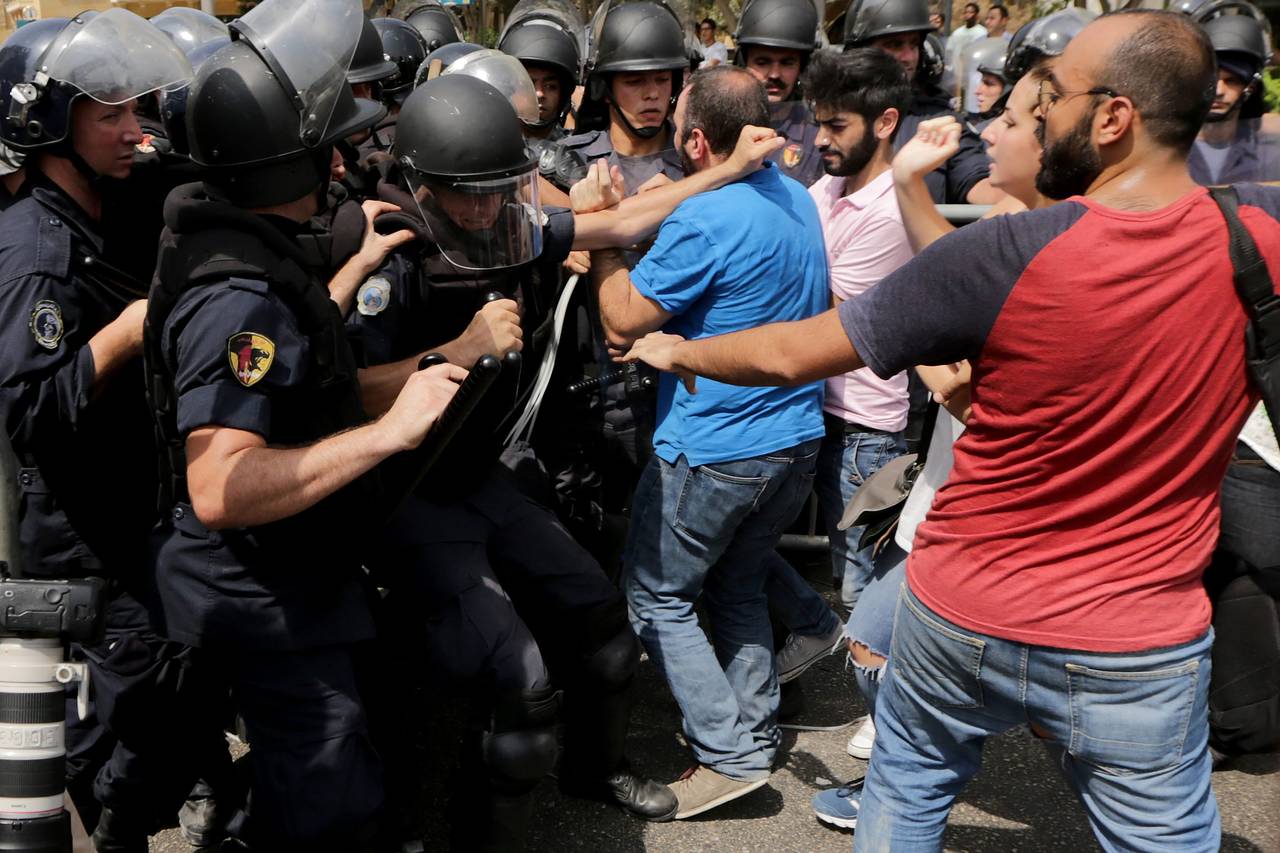By Dana Ballout

BEIRUT—Nearly 40 protesters were arrested Wednesday as antigovernment demonstrators calling for a solution to Lebanon’s garbage crisis and an end to corruption clashed with police in Beirut, even as organizers said the protests would continue.
The clashes broke out as demonstrations attempted to block officials from entering Beirut’s central parliament building, where a second national dialogue to discuss a new election law and resolve the country’s presidential vacuum was being held. Members from all political parties were invited to join the dialogue.
Lebanon has been without a president for more than a year, a result of the political gridlock that has helped fuel the protests.
“’No [to] useless dialogues that abate the work of the State’s institutions,” its organizers said in a Facebook post on Tuesday, calling for protesters to gather outside parliament. “Bring your pans, your eggs, your garbage and your veggies.”
Images and videos posted to social media by activists showed police dragging protesters by their hair and beating them with batons. Among those arrested were hunger strikers who have been camping outside the government building without food for nearly two weeks, activists said.
At least 10 protesters were also wounded in a rock-throwing attacks by a group of young men chanting slogans in favor of Parliament Speaker Nabih Berri, who was leading the talks. Mr. Berri’s political party, Amal Movement, denied involvement in the incident in a statement Wednesday, leaving the men’s affiliation unknown.
Despite Wednesday’s clashes, YouStink, the youth movement behind the protests, said they would continue.
As government officials exited the parliament building, many appeared unaware of the violence that had taken place outside.
“We have differences and that’s why we have a dialogue,” said Telecommunications Minister Butros Harb, adding that the group’s priority was to find a solution to the deadlock over electing a new president.
Protests began in July when residents of Naameh, a town south of Beirut, barricaded one of the country’s largest landfills and called it a health hazard.
With no alternative dump site, garbage collection in two governorates, Beirut and neighboring Mount Lebanon, came to a near standstill. Trash piled up on the capital’s streets, prompting thousands to demonstrate against the government’s inability to find a solution to the crisis.
Grievances quickly expanded to include frustration with decades of government inefficiency, corruption and its failure to provide basic services including water and power, both of which are regularly shut off.
On Tuesday, the ministry of health highlighted the risks of prolonging the trash crisis into Lebanon’s cold, wet fall and winter seasons.
Rain flooding mounds of uncollected trash can cause toxic fluids to seep into the earth, it said in an online statement, contaminating crops with bacteria including salmonella. It also cautioned that metals like nickel and mercury can infect the water supply, increasing the risk of long-term illness including cancer and Alzheimer’s.
Write to Dana Ballout at dana.ballout@wsj.com



